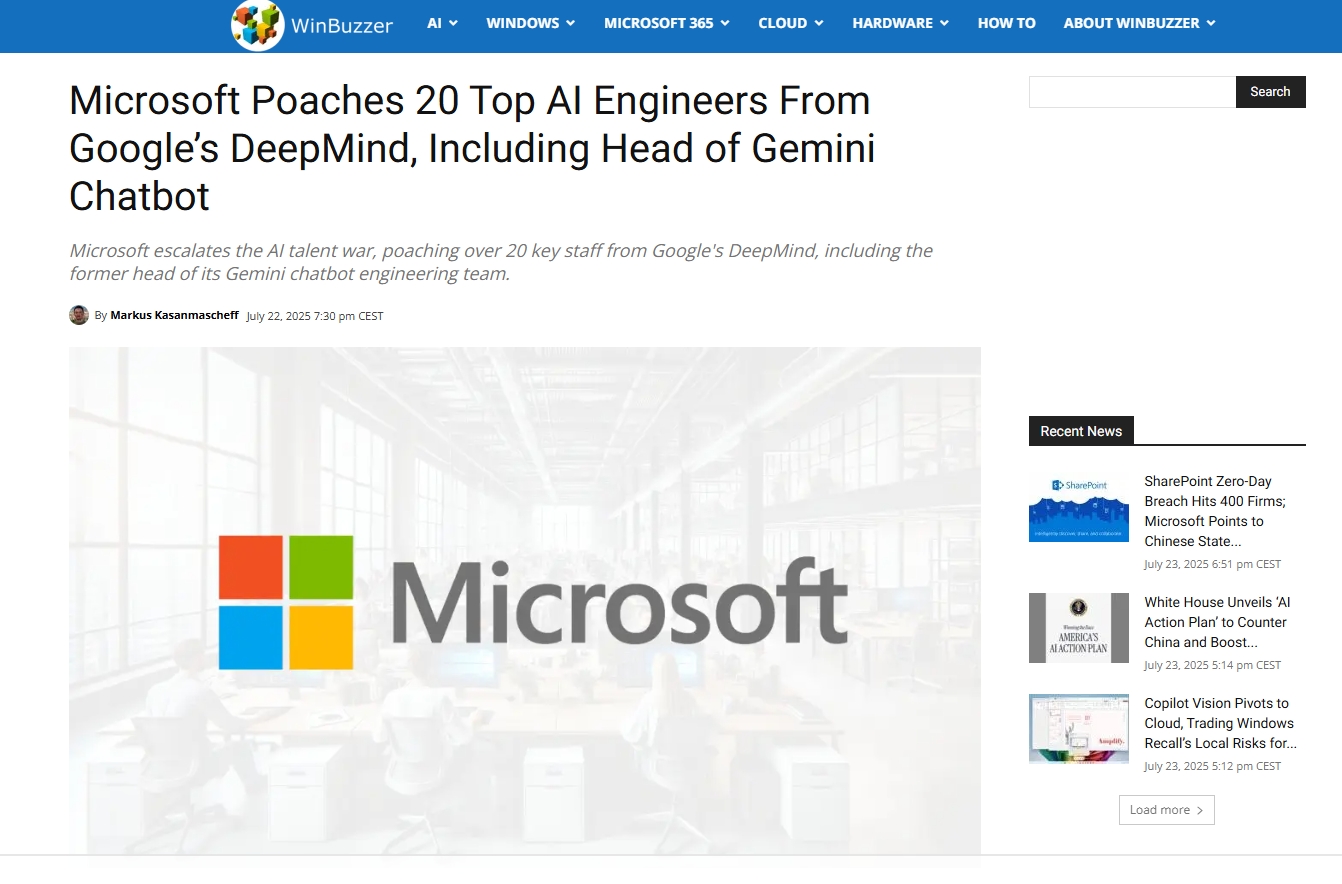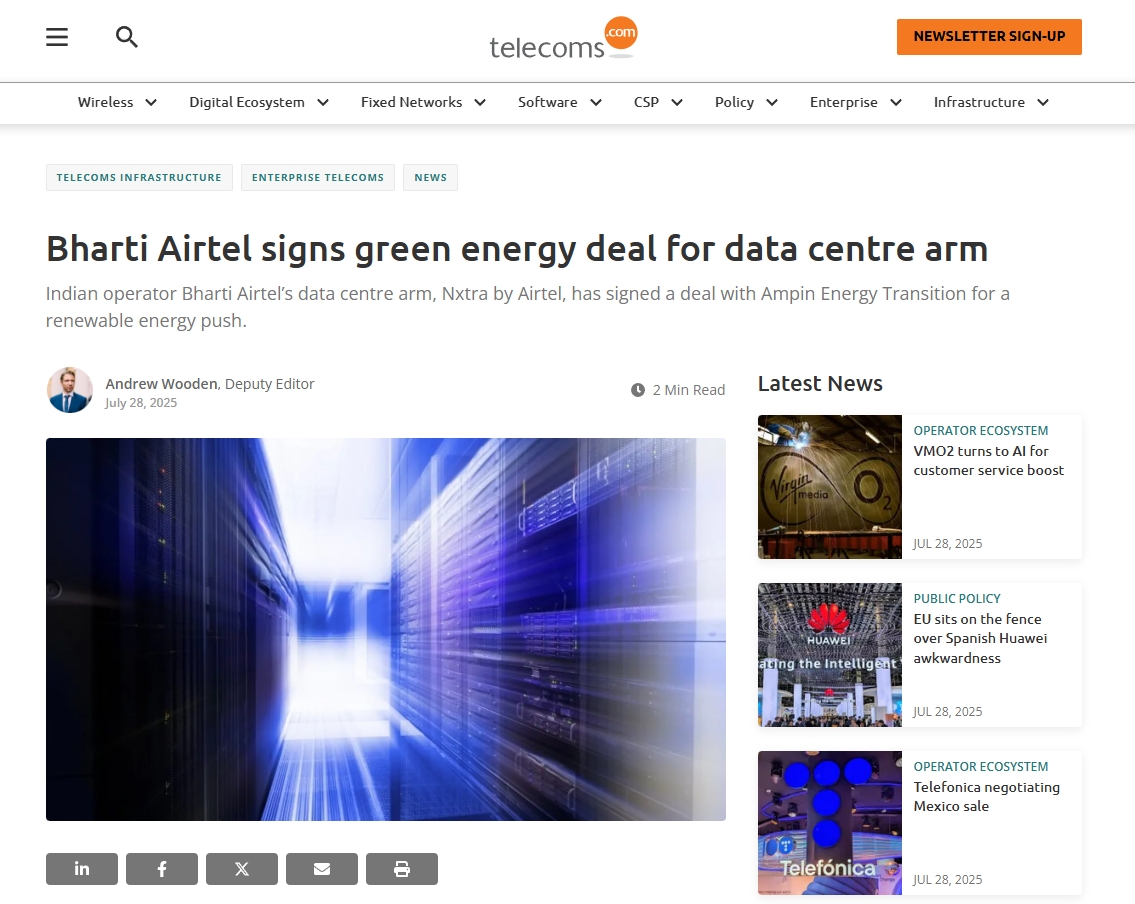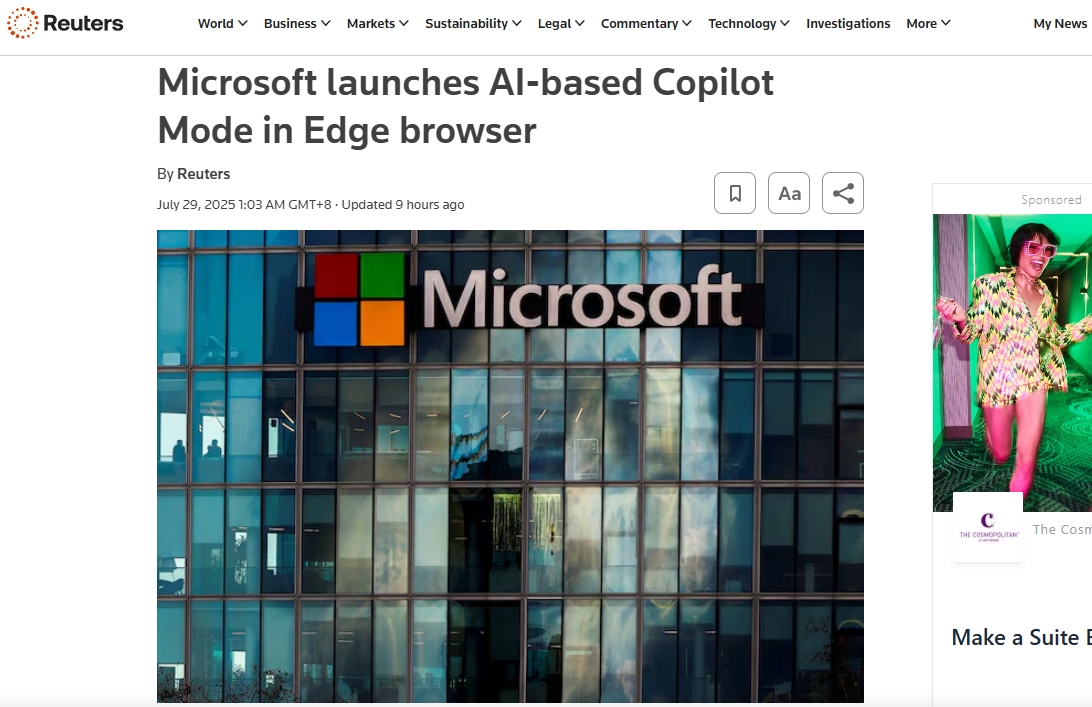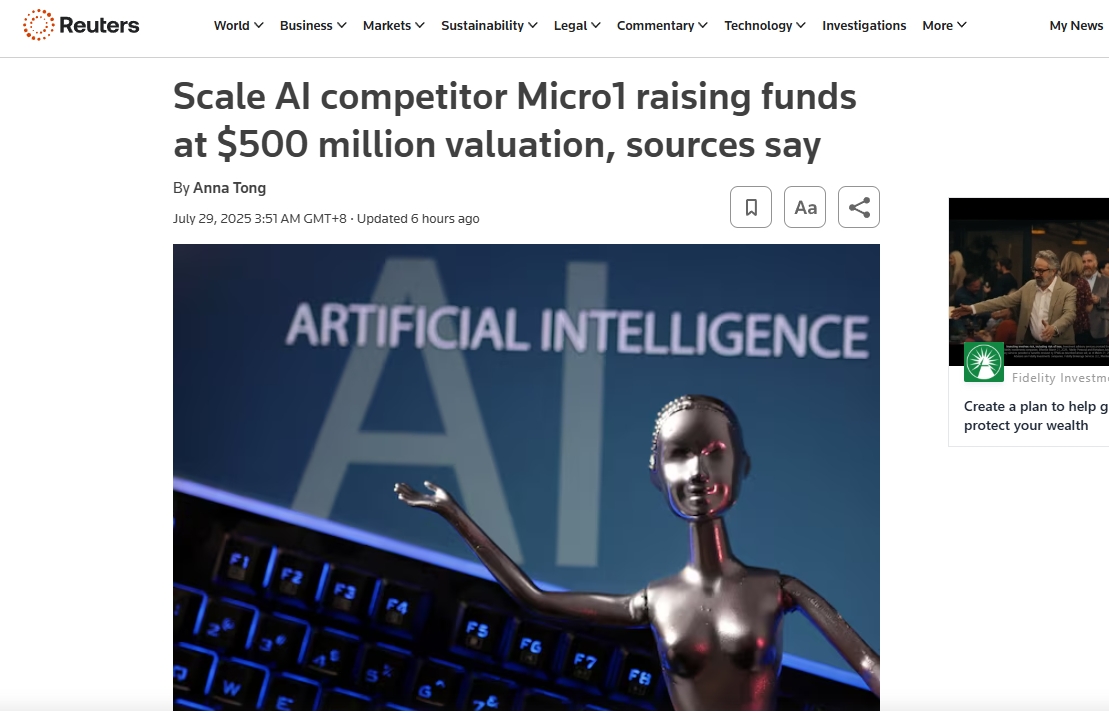Microsoft escalates the AI talent war, poaching over 20 key staff from Google's DeepMind, including the former head of its Gemini chatbot engineering team.
Microsoft has escalated the fierce AI talent war, poaching more than 20 employees from Google’s DeepMind research division in a direct challenge to its rival. The highest-profile defection, confirmed Tuesday, is Amar Subramanya, the former head of engineering for Google’s Gemini chatbot, who now joins Microsoft as a corporate vice-president of AI.
In a post announcing the move, Subramanya praised his new employer’s environment, stating, “the culture here is refreshingly low ego yet bursting with ambition.” The aggressive recruitment drive over the past six months underscores Microsoft’s strategy to gain a competitive edge by acquiring critical talent from the very team behind Google’s flagship AI.
A New Front in the AI Talent War
The hiring spree appears to be largely orchestrated by Microsoft’s consumer AI chief, Mustafa Suleyman, himself a co-founder of Google’s DeepMind division. His appointment came in March 2024 after Microsoft executed a so-called “acqui-hire,” paying $650 million to license the technology from his AI startup, Inflection, and bring on most of its staff. This history places him in direct and personal competition with his former partners.
This strategic move puts Suleyman directly at odds with his former partner and current DeepMind leader, Sir Demis Hassabis, creating a high-stakes rivalry between two of the industry’s most influential figures. While Hassabis has continued to pioneer the use of AI for science and healthcare, even winning a Nobel Prize for his work, Suleyman is now tasked with spearheading Microsoft’s ambitious consumer-facing AI strategy.
The recent raid on the Gemini team is not Suleyman’s first move against his former company. Late last year, he successfully poached DeepMind’s Dominic King and Christopher Kelly to establish a new AI health unit at Microsoft. This underscores a clear pattern of targeting familiar, high-value talent to accelerate Microsoft’s ambitions in critical sectors.
This move is not an isolated incident but part of a wider, aggressive industry battle for top AI talent. Tech giants are poaching from each other at an unprecedented rate, creating a volatile and expensive market for elite researchers and engineers that is reshaping Silicon Valley’s power dynamics.
The strategic value is clear: acquiring a proven team is faster and often more effective than building one from scratch. By targeting the Gemini team, Microsoft not only gains expertise but also potentially disrupts a key competitor’s roadmap, making this a dual-pronged strategic assault.
Cracks in the Foundation: How Internal Crises Fuel the Poaching Frenzy
Much of this poaching frenzy is fueled by internal crises. Meta has been particularly aggressive, pursuing a “buy or poach” strategy after internal setbacks with its Llama 4 “Behemoth” model reportedly created a “panic mode” among its teams, forcing it to look outward for talent.
This external aggression is a direct response to internal challenges. The company poached top Apple AI manager Ruoming Pang, a move catalyzed by Apple’s controversial decision to veto an open-source AI plan. That veto sparked a significant talent exodus from Apple to rivals like Meta.
For Apple’s researchers, the decision to prioritize product secrecy over scientific openness was a breaking point. It signaled a culture clash that made Meta, with its more open research posture, an attractive alternative despite its own internal issues, according to reports.
Meta also raided OpenAI, hiring at least eight researchers in a single week, which ignited a public dispute over compensation. The conflict prompted a leaked memo from OpenAI’s Chief Research Officer, Mark Chen, who described a “visceral feeling right now, as if someone has broken into our home and stolen something,” confirming the company was scrambling to “recalibrate comp”.
But while Meta projects strength through its high-profile hires, a former researcher’s memo alleged a “culture of fear.” The departing employee described the AI division as a “metastatic cancer that is affecting the entire organisation,” revealing a stark contrast between public ambition and internal dysfunction.
Beyond the Paycheck: The New Currency of GPUs and Autonomy
The core motivation for top talent is shifting beyond salary. Meta CEO Mark Zuckerberg recently revealed what elite researchers truly want. In a July interview, he explained that the best minds are not asking for scope or titles, but for resources and freedom, stating, “here, people say, ‘I want the fewest number of people reporting to me and the most GPUs,'” he explained.
This desire for raw computational power is now a key recruiting tool. Access to vast clusters of GPUs—the specialized chips essential for training large-scale AI models—has become the ultimate currency. It’s a strategic advantage for attracting the best people, Zuckerberg elaborated.
This sentiment is echoed across the industry. Perplexity CEO Aravind Srinivas recalled a recruitment attempt being bluntly shut down by a Meta researcher who told him to “come back to me when you have 10,000 H100 GPUs,” highlighting the immense leverage held by companies with massive compute resources.
In response to the poaching, Google has tried to project stability. A person close to the matter said DeepMind’s attrition rates are below the industry average. In an official statement, the company said, “we are excited that we are able to attract the world’s leading AI talent, including researchers and engineers who come from rival labs,” adding that it also successfully poaches from rivals.
The irony of Microsoft’s raid is sharpened by recent news. Just a day before Subramanya’s move was confirmed, Google DeepMind announced its Gemini AI had won a gold medal at the International Mathematical Olympiad, a significant achievement in AI reasoning.
The Great Contradiction: Funding the AI Talent War with Mass Layoffs
This frantic talent war is funded by a stark paradox: soaring profits and mass layoffs. Microsoft recently cut 9,100 jobs to streamline operations and reallocate capital directly to its AI pivot. This strategy is reshaping the entire tech labor market.
It creates a new class of highly-paid AI specialists while displacing thousands of other employees, a trend visible across Big Tech that is minting a new AI elite. This dynamic has been described as one of the great contradictions of the current tech economy.
The human cost of this pivot was starkly highlighted when an Xbox manager advised laid-off staff to use AI for emotional support, sparking outrage. The incident underscored a growing disconnect between management pushing AI efficiency and the employees affected by the changes.
Microsoft’s AI chief Mustafa Suleyman has framed his goal as solving humanity’s problems, not just racing to superintelligence. This adds a layer of humanist philosophy to the company’s aggressive corporate strategy, even as it wages a costly war for talent.








